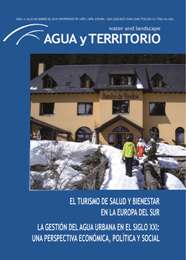El acceso al agua y la construcción de territorio en Milpa Alta, México D. F.
DOI:
https://doi.org/10.17561/at.v0i6.2817Palabras clave:
acceso al agua, confrontación territorial, México D. F.Resumen
La construcción de un territorio es una actividad compleja que es necesario comprender. El caso de Milpa Alta puede ilustrarnos al respecto ya que el espacio se está recreando constantemente a partir de una confrontación territorial entre dos fuerzas sociales en pugna: por un lado el gobierno que intenta preservarlo para su conservación ecológica; y por el otro, la legítima búsqueda de sus habitantes por mejorar sus condiciones de vida. La resultante de esta confrontación construye una estratificación territorial y social que implica diferencias sustanciales en los modos en los que la población puede acceder al agua para consumo humano, que van desde mecanismos formales a informales y de lo legal a lo ilegal. El objetivo de este texto es hacer observables los múltiples mecanismos de abasto de agua encontrados en una zona periurbana del Distrito Federal (Milpa Alta) los procesos, actores y estrategias involucradas; así como comenzar a comprender su correspondencia con la construcción del territorio en tanto construcción social del espacio.
Descargas
Descargas
Publicado
Número
Sección
Licencia
© Universidad de Jaén
Los originales publicados en las ediciones impresa y electrónica de esta Revista son propiedad de la Universidad de Jaén siendo necesario citar la procedencia en cualquier reproducción parcial o total.
Salvo indicación contraria, todos los contenidos de la edición electrónica se distribuyen bajo una licencia de uso y distribución “Creative Commons Reconocimiento 4.0 España” (CC-by). Puede consultar desde aquí la versión informativa y el texto legal de la licencia. Esta circunstancia ha de hacerse constar expresamente de esta forma cuando sea necesario.














